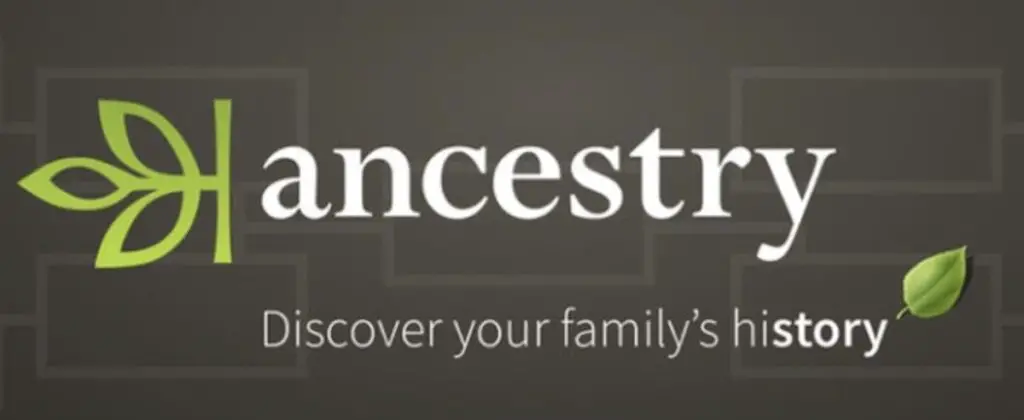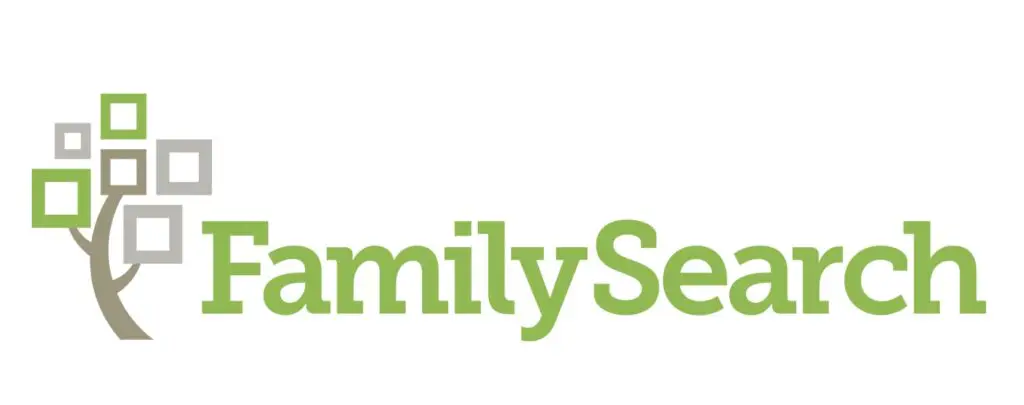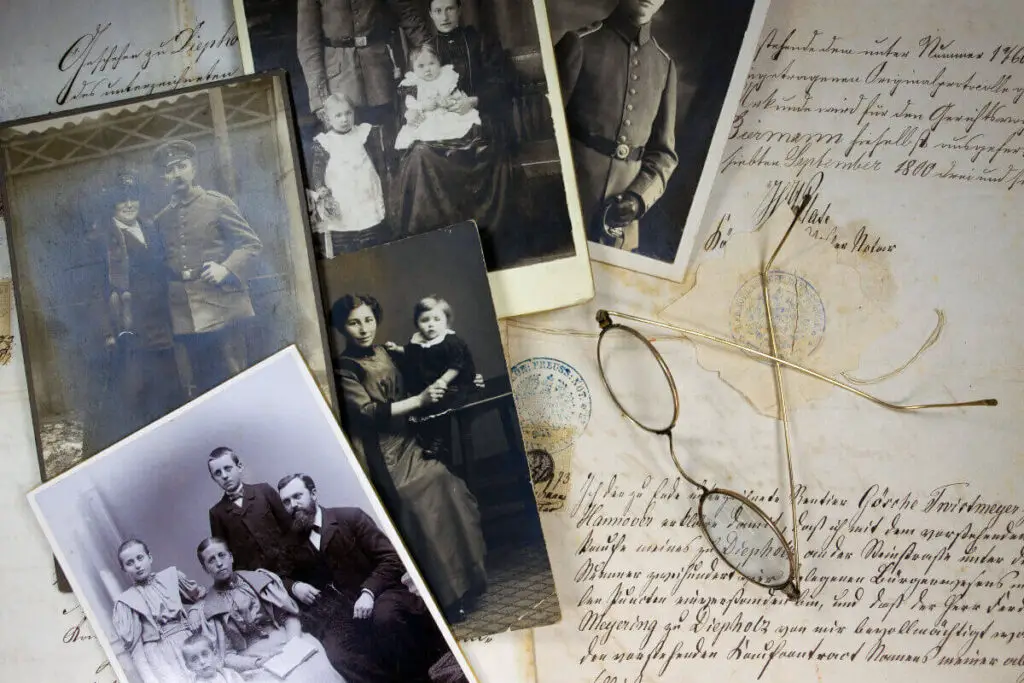When individuals set out to explore their family history, one common question is how to conduct genealogical research effectively. In today’s digital age, numerous tools and platforms can assist you in tracing your lineage.
Read on as we delve into some of our top recommended resources for ancestral discovery. Additionally, we’ll discuss the profound impact of uncovering your family history on your understanding of yourself, underscoring why this is a rewarding venture.
Table of Contents
- 10 Ways To Unearth Your Family History: A Comprehensive Guide
- 1. Conversations With Relatives
- 2. DNA Research
- 3. Tap Into Pre-existing Family Research
- 4. Utilize Census Records
- 5. Explore Gravestones And Public Records
- 6. Dive Into Online Platforms: Ancestry.com And FamilySearch.org
- 7. Leverage FamilySearch.org’s Free Records
- 8. Assess Pre-Existing Genealogies
- 9. Consider Local Archives And Libraries
- 10. Join Online Genealogical Communities
- The Self-Discovery Journey: What You Can Learn About Yourself Through Family History Research
- A Deeper Sense Of Identity
- Greater Context For Family Traditions And Cultural Practices
- Avenues For Personal Growth
- Enhanced Understanding Of Genetic Predispositions
- Expanding Your Sense Of Belonging
- Contextualizing Family Dynamics
- Legacy And Connection Across Generations
- Greater Empathy And Openness
- Related Questions
10 Ways To Unearth Your Family History: A Comprehensive Guide
Discovering your family history can be an enriching experience, offering a window into your ancestors’ lives and the events that shaped your family’s journey. With a plethora of resources at your fingertips, both digital and traditional, tracing your lineage has never been easier. In this blog post, we will explore 10 methods to assist you in navigating the intricate maze of your family history.
1. Conversations With Relatives

Why Start With Relatives?
Your immediate and extended family can provide invaluable insights into your genealogy. Older family members like parents, grandparents, great-aunts, and great-uncles can offer a wealth of information. Record these discussions for future reference.
A Note On Accuracy
While family stories offer rich details, remember that they may not always be 100% accurate. However, even partially correct information can be important stepping stones in your research journey.
2. DNA Research
The Role Of DNA Testing
With the advent of DNA technology, corroborating family links has become more scientific. While DNA cannot provide definitive answers, it can support or refute family stories and connections.
Prioritize Elderly Relatives
If possible, prioritize testing the DNA of older relatives. Their genetic material can offer more valuable information in establishing ancestral links than yours.
3. Tap Into Pre-existing Family Research
Leverage Earlier Efforts
You might be lucky to have a family member who has already ventured into genealogical research. Always cite your sources meticulously, especially if you build upon another relative’s work.
We love the FamilySearch website as it is free and a collaborative site where people will work together. So, if you start, this is a great place to see if others have been working on your family line already.
4. Utilize Census Records
Why Census Records?
Census records offer a snapshot of a family at a particular time. However, these records can sometimes contain inaccuracies, such as incorrect ages. Use them as guidelines rather than definitive sources.
5. Explore Gravestones And Public Records
What Public Records Offer
Besides census data, public records like birth, death, and marriage certificates offer critical data. Similarly, gravestones can provide essential dates, but remember that even they can have errors.
6. Dive Into Online Platforms: Ancestry.com And FamilySearch.org

Why Ancestry.com?
This subscription-based service offers a user-friendly interface to create your family tree and gives access to numerous historical records.

Why FamilySearch.org?
Familysearch.org is also a free website with a lot of great information. We love how this is also a collaborative website.
7. Leverage FamilySearch.org’s Free Records
What Sets FamilySearch Apart?
FamilySearch offers a plethora of free records and is particularly beneficial for those on a budget. Additionally, it is a collaborative platform that allows you to work with other genealogists.
8. Assess Pre-Existing Genealogies
Cautious Utilization
While pre-existing genealogies can offer a head start, they may also contain errors or omissions. Always cross-reference and cite these sources.
9. Consider Local Archives And Libraries
The Value Of Offline Resources
Local history societies, libraries, and archives often hold untapped resources that may not be digitized. These can be incredibly valuable in your research.
10. Join Online Genealogical Communities
Networking And Collaboration
Online forums and communities offer a chance to interact with other genealogy enthusiasts. Sharing resources and tips can exponentially speed up your research process.
Embarking to discover your family history can be daunting but incredibly rewarding. Utilizing a mix of technology and traditional methods, from platforms like Ancestry.com and FamilySearch.org to conversations with your relatives, ensures a multi-faceted approach to uncovering your past.
With proper citation and verification, each puzzle piece will help you paint a more complete picture of your family’s rich tapestry.
The Self-Discovery Journey: What You Can Learn About Yourself Through Family History Research
Embarking on a journey to discover your family history is not just about tracing the branches of your family tree. It is also a deeply personal endeavor that can offer insights into who you are, where you come from, and even why you think and feel the way you do. Below are some enriching aspects of self-discovery that can unfold as you delve into your ancestral past.

A Deeper Sense Of Identity
Understanding your family’s history gives you a richer, more nuanced sense of identity. Learning about your ancestors’ occupations, achievements, struggles, and lifestyles can make their history feel like a part of your narrative.
This can bring a newfound sense of pride and a deeper connection to your heritage.
Greater Context For Family Traditions And Cultural Practices
Family traditions and customs often have deep historical roots. Uncovering the origins of these practices can bring a greater sense of meaning to annual family gatherings, religious rituals, or even the simple traditions around the dinner table.
Avenues For Personal Growth
Learning about the resilience and determination of your ancestors in the face of adversity can be incredibly empowering. It can inspire you to overcome challenges and be more empathetic toward others experiencing hardship.
Enhanced Understanding Of Genetic Predispositions
Genealogical research often goes hand-in-hand with genetic testing, which can provide actionable insights into your health. Understanding any inherited diseases or conditions in your family can equip you with the knowledge to take proactive steps.
Expanding Your Sense Of Belonging
Discovering distant relatives or learning about the communities your ancestors were part of can expand your sense of community and belonging. Whether connecting with third cousins or knowing the name of the small town where your great-grandparents grew up, these details can make the world feel like a smaller, friendlier place.
Contextualizing Family Dynamics
Ever wonder why a particular trait or talent runs in the family? Or why do certain family members not get along? Understanding the dynamics that shaped previous generations can offer insights into your familial relationships.
Legacy And Connection Across Generations
As you collect family stories, photographs, and documents, you’re also preserving them for future generations. This creates a lasting legacy and can instill in younger family members an appreciation for their history and an understanding of the family’s collective narrative.
Greater Empathy And Openness
Sometimes, family history research uncovers uncomfortable or challenging truths. While this can be emotionally taxing, it also provides an opportunity for greater empathy and understanding for your ancestors and yourself.
Discovering your family history is more than a genealogical exercise; it’s a pathway to self-discovery. The process can enrich your life in unexpected ways, offering a greater sense of identity, community, and understanding—benefits that extend far beyond simply knowing the names and dates of your ancestors.
As you unearth your family’s past, you also lay the groundwork for a more connected and insightful future.
The Hummel Family is a website all about Family History research. We focus on Swedish, German, English, Scottish, and American Genealogy. We also discussed Asia and China, as we had ancestors who spent many years in China.
You are welcome to join us and become part of our community by signing up for our FREE newsletter, The Hummel Family; sign up by clicking here.
Also, check out our Youtube Channel, Family HIstory Buzz, by clicking here.
Related Questions
What Are The Swedish Mantal Tax Records?
The Swedish Mantal tax system was prevalent in Sweden for over 300 years. The Mantal tax was a tax placed upon Swedish households and people. The Mantal tax system was organized and structured.
You can learn more by reading our blog What Are The Swedish Mantal Tax Records? History & Genealogy Research Tips by clicking here.
What Is The Purpose Of Genealogy?
The purpose of genealogy is to study family, family history, and the tracing of our lineage or our ancestors. The purpose of genealogy goes far beyond the dates, names, and places of our ancestors. This is because you learn more about your family and yourself as you do your genealogy. Genealogy helps to unite and link families as you discover things about your family that you did not know.
You can learn more about Genealogy by reading our blog What Is The Purpose of Genealogy? by clicking here.
Any Good Alternatives To Ancestry.com?
The best alternative to Ancestry.com is FamilySearch. We like the FamilySearch program because it is free, collaborative, and easy to use. FamilySearch also offers many sophisticated functions and features that other programs would charge for.
You can learn more by reading our blog Any Good Alternatives To Ancestry.com? by clicking here.
